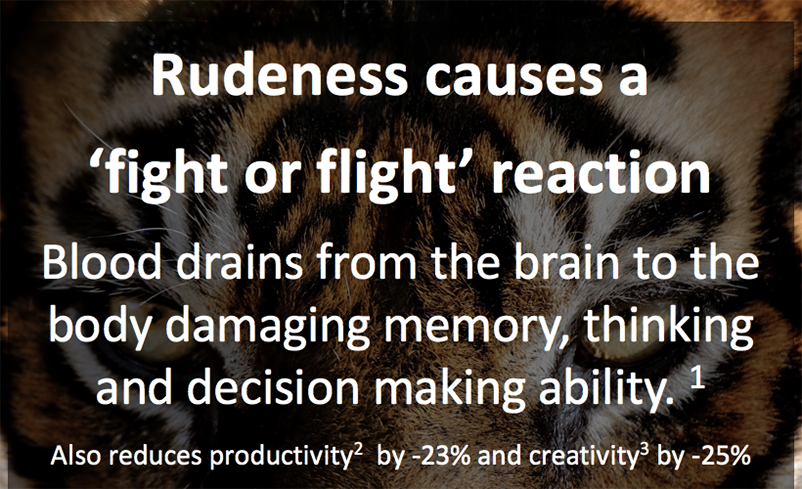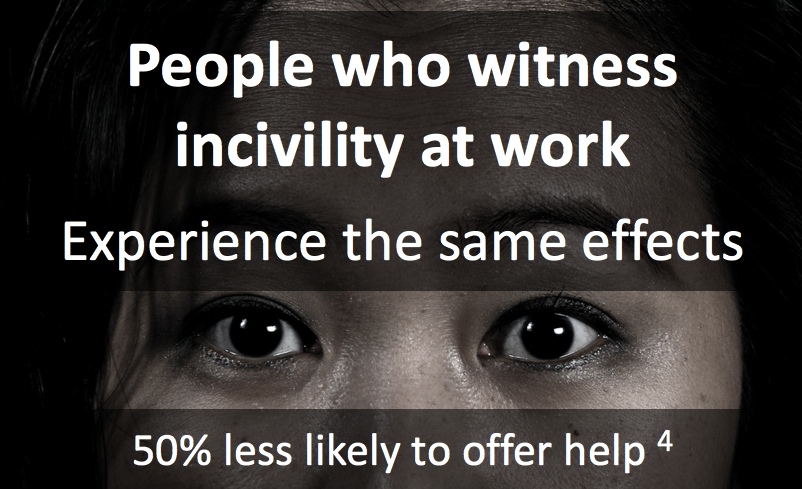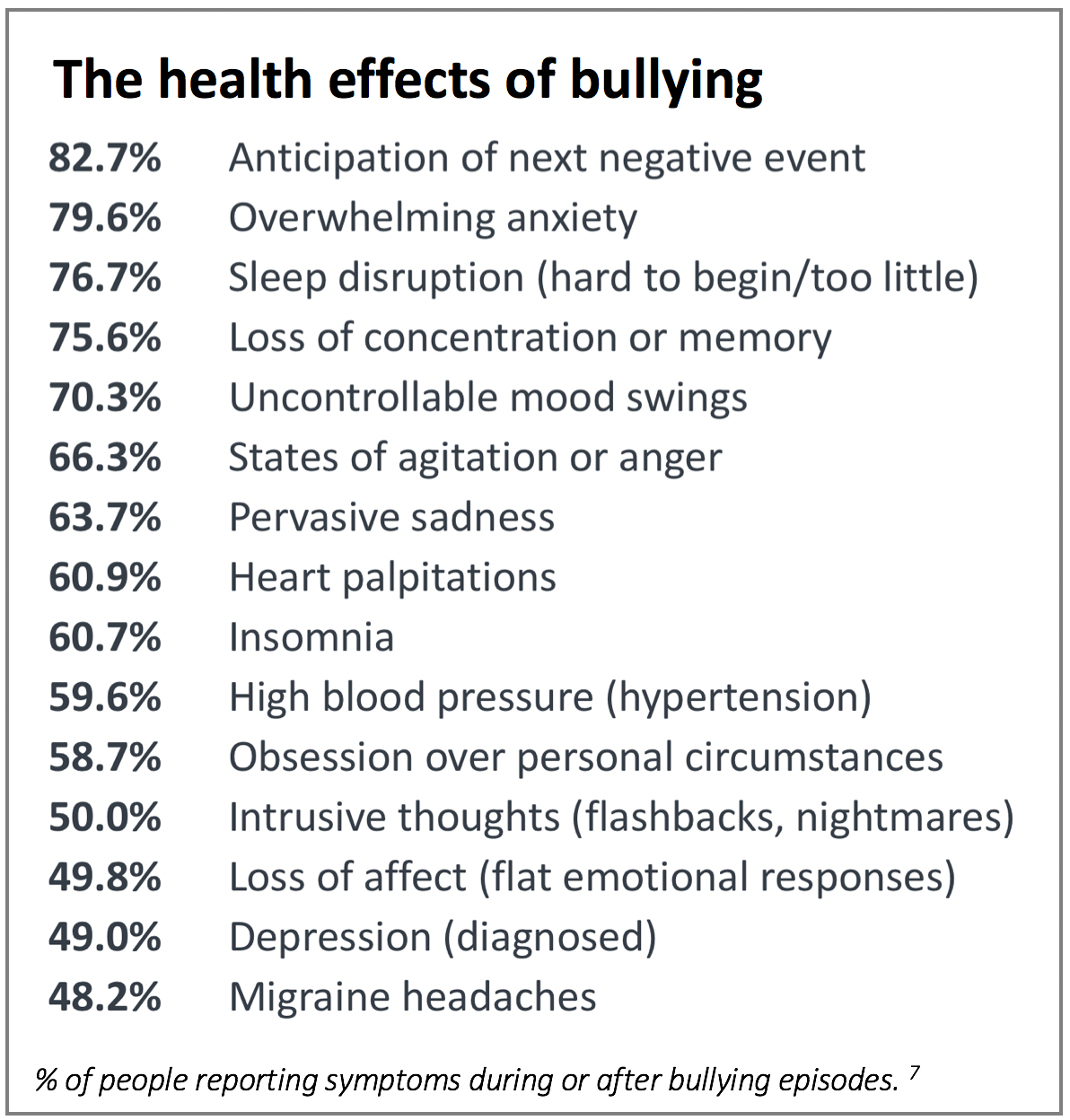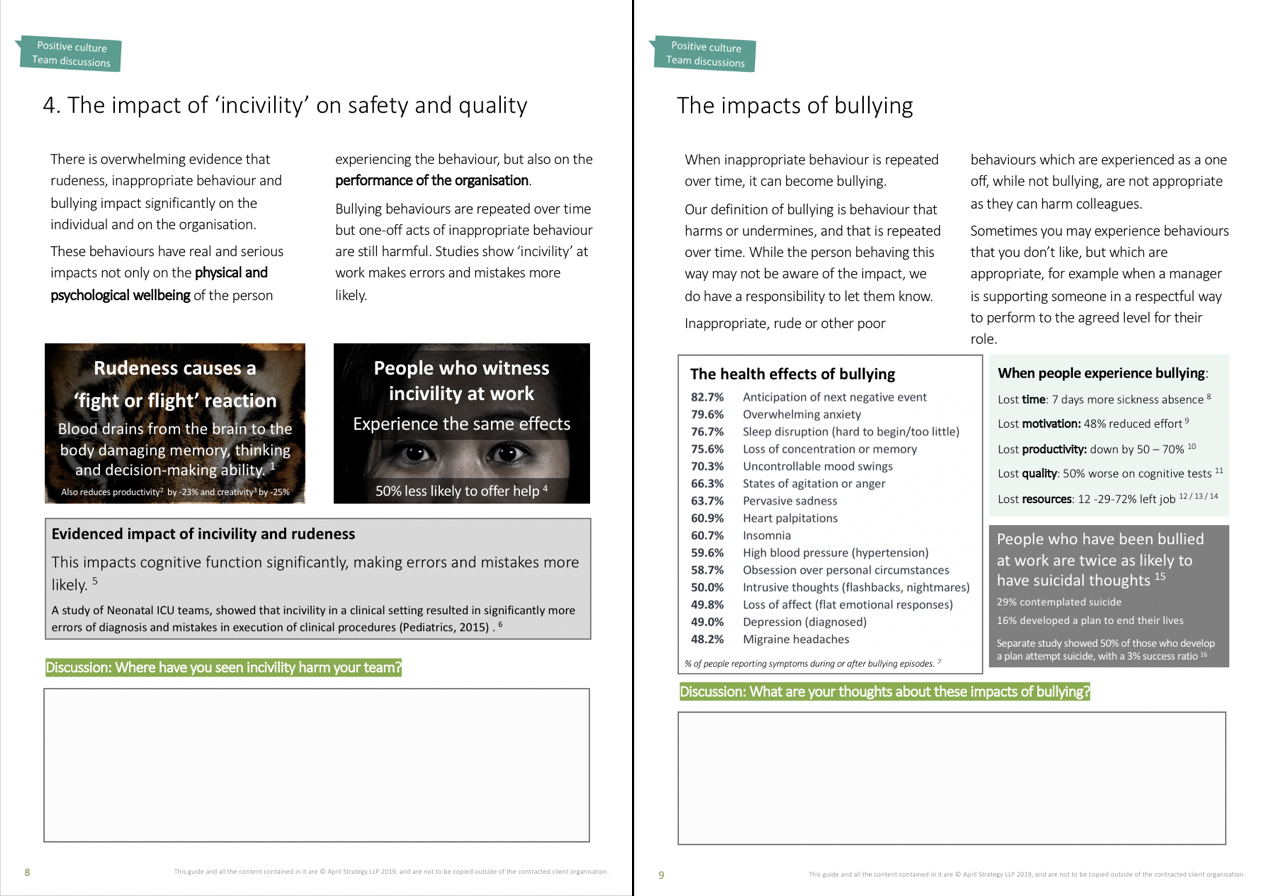5. The evidence
- Jump to 5B - impact of bullying on wellbeing
5A. The impact of incivility on safety and quality
There is overwhelming evidence that rudeness, inappropriate behaviour and bullying impact significantly on the individual and on the organisation.
These behaviours have real and serious impacts not only on the physical and psychological wellbeing of the person experiencing the behaviour, but also on the performance of the organisation.
Bullying behaviours are repeated over time but one-off acts of inappropriate behaviour are still harmful. Studies show ‘incivility’ at work makes errors and mistakes more likely.


Discussion: Where have you seen incivility harm your team or patients’ safety?
5B. The impact of bullying on wellbeing
When inappropriate behaviour is repeated over time it can become bullying.
Our definition of bullying is behaviour that harms or undermines, and that is repeated over time. While the person behaving this way may not be aware of the impact, we do have a responsibility to let them know.
Inappropriate, rude or other inappropriate behaviours which are experienced as a one off, while not bullying, are not acceptable as they can harm colleagues and patients.
Sometimes you may experience behaviours that you don’t like, but which are acceptable, for example when a manager is supporting someone in a respectful way to perform to the agreed level for their role.
The table shows the health impacts of bullying on those experiencing it.

The worksheet includes more data and evidence for the team to review and discuss.
Discussion: What are your thoughts about these impacts of bullying?
Download the worksheet here.
Next: Your team charter